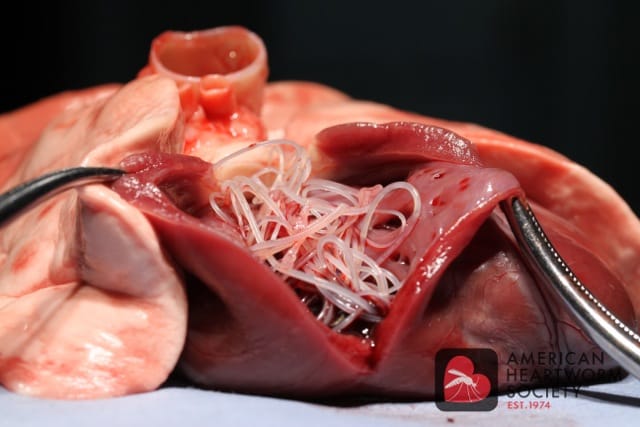What is Heartworm Disease?

Have you heard of heartworm disease?
Was it at the vet office and your vet said it was really important but didn't really explain it well?
Heartworm disease is a serious and potentially deadly condition primarily affecting dogs, though it can occasionally affect cats. It is caused by worms (Dirofilaria immitis), which are transmitted through mosquito bites.

Once an infected mosquito bites a pet, the larvae enter the bloodstream and travel to the heart and lungs, where they mature into adult worms. These worms can cause severe lung disease, heart failure, and damage to other organs. Early detection and preventative measures are important to protect your pet's health.
Transmission and Symptoms
- Transmission: Mosquito bites are the primary way that heartworm disease is spread. When an infected mosquito bites a dog or cat, the heartworm larvae go into the pet’s bloodstream.
- Symptoms in Dogs: Symptoms include coughing, fatigue, decreased appetite, and weight loss. In severe cases, heartworm disease can lead to heart failure and sudden death.
- Symptoms in Cats: Although rarer, cats can exhibit symptoms such as coughing, vomiting, weight loss, and difficulty breathing. However, heartworm disease in cats is often more difficult to diagnose and can be more challenging to treat.
Prevention and Treatment
- Prevention: Monthly heartworm preventatives are the most effective way to protect your pet. These medications kill the larvae before they mature into adult worms.
- Treatment for Dogs: If a dog is diagnosed with heartworm disease, treatment involves a series of injections to kill the adult worms. This treatment can be risky and expensive, highlighting the importance of prevention.
- Treatment for Cats: There is no approved treatment for heartworm disease in cats, making prevention even more critical. Supportive care and managing symptoms are the primary methods of addressing heartworm in cats.
Conclusion
Heartworm disease is a severe health threat to pets, particularly dogs. Given its transmission through mosquitoes and the potentially fatal consequences, it's essential to use preventative measures consistently. Regular vet visits and heartworm preventatives are crucial in safeguarding your pet's health.
Now What?
Has your dog had it's yearly heartworm test? Even if your dog is on heartworm prevention, the American Heartworm Society still recommends a yearly heartworm test.
Speak with your vet about heartworm today!

